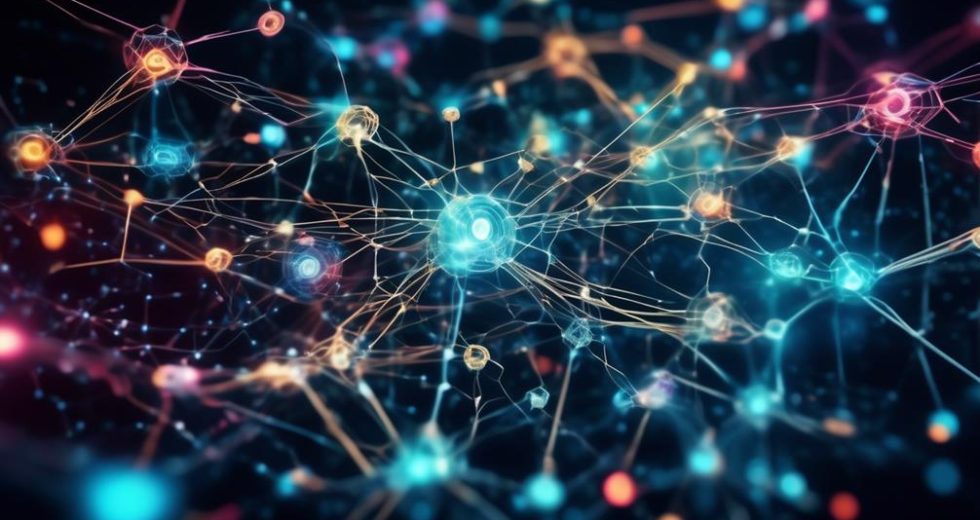Did you know that over 90% of the world's data has been generated in just the last two years? It's a staggering statistic that highlights the exponential growth and importance of data in today's digital age.
As we witness this data explosion, we find ourselves at a crossroads, where the convergence of the Semantic Web and Web3 presents a transformative vision for the future of the internet.
In this ever-evolving landscape, where machines process information more efficiently and individuals regain control over their personal data, we are on the cusp of a paradigm shift that will redefine the very nature of the internet.
But what does this future hold? How will it impact industries and society as a whole? In this discussion, we will explore the full picture of the Semantic, Sovereign Web, unraveling the key technologies and considerations that shape the future of the internet.
So, let's embark on this journey together, and discover the potential of a more intelligent and decentralized online world.
Key Takeaways
- The Semantic Web aims to make data on the internet more easily understandable by machines.
- Web3 and the Semantic Web converge to create a more intelligent and interactive internet.
- With Web3, individuals will have more control over their personal data, leading to a more private and secure internet.
- The convergence of the Semantic Web and Web3 will create a more intelligent and sovereign internet, impacting society and industry.
The Semantic Web and Web3
The convergence of the Semantic Web and Web3 revolutionizes the internet, enabling a more intelligent and interactive digital landscape.
The Semantic Web, with its standardized data descriptions, allows machines to understand and utilize information more effectively. This opens up a world of possibilities for Semantic Web applications, where data can be better organized and interpreted by machines.
Web3, on the other hand, focuses on the interoperability of different systems on the internet. By leveraging blockchain technology, Web3 enables decentralized and secure transactions, giving individuals more control over their personal data.
The combination of the Semantic Web and Web3 creates a powerful synergy, where machines can understand and interact with data in a more meaningful way. This has profound implications for industries and society as a whole, as it paves the way for a more intelligent and sovereign internet.
The Sovereign Web and Web3
With the convergence of the Semantic Web and Web3, a more intelligent and interactive digital landscape emerges, empowering individuals with greater control over their personal data.
Web3 brings decentralized control, allowing users to decide what information they share and with whom. This shift from centralized systems to decentralized ones leads to a more private and secure internet.
Individuals and organizations gain power, as the internet returns to its original purpose of decentralization. This has significant implications for both society and industry.
However, there are challenges that need to be addressed for Web3 to succeed, such as blockchain scalability. Nonetheless, the Sovereign Web, enabled by Web3, promises to revolutionize the internet by prioritizing personal data protection and giving individuals the ability to control their own digital presence.
Implications for Industry and Society
The convergence of the Semantic Web and Web3 brings about significant implications for both industry and society. One of the key implications is in the area of data privacy. With the Semantic Web and Web3, individuals will have more control over their personal data. They can choose what information to share and with whom, creating a more private and secure internet. This shift towards decentralized systems gives power to individuals and organizations, allowing them to protect their data from unauthorized access.
On the other hand, the impact on the job market is also an important consideration. As the internet becomes more intelligent and interactive, there may be a shift in the types of jobs available. Some jobs may become automated or obsolete, while new opportunities may arise in areas such as artificial intelligence and data analytics. It's important for industries and individuals to adapt and upskill in order to thrive in this changing landscape.
Key Technologies for the Future Internet
As we explore the key technologies shaping the future internet, it's crucial to consider their implications for industry and society in the context of the convergence between the Semantic Web and Web3.
Two key technologies that are driving this convergence are Artificial Intelligence (AI) for data analysis and Blockchain for secure transactions.
AI plays a critical role in processing and analyzing the massive amounts of data generated on the internet. It enables machines to understand and derive insights from this data, leading to more intelligent decision-making and personalized experiences.
On the other hand, Blockchain ensures the security and integrity of transactions on the internet. It provides a decentralized and tamper-proof system for recording and verifying transactions, making it ideal for applications such as digital currencies and smart contracts.
Together, AI and Blockchain are transforming the future internet, enabling a more intelligent and secure digital ecosystem.
Challenges and Considerations
One of the key challenges in shaping the future internet is ensuring data privacy and protection. As we move towards a more interconnected and intelligent web, it becomes crucial to address ethical concerns and protect user data. Here are four considerations to keep in mind:
- Balancing privacy and innovation:
Striking the right balance between data privacy and enabling innovation is essential. We must find ways to protect user privacy without stifling technological advancements.
- Developing robust security measures:
With increased connectivity comes an increased risk of cyber threats. It's imperative to develop robust security measures to safeguard sensitive information and prevent unauthorized access.
- Establishing transparent data governance:
Clear guidelines and regulations need to be established to govern the collection, storage, and usage of data. Transparency in data practices is crucial to build trust among users.
- Educating users about their rights:
Digital literacy and awareness about data privacy are essential for users to make informed decisions. Educating users about their rights and responsibilities regarding their data will empower them to protect their privacy online.
Addressing these challenges will be crucial in shaping a future internet that respects user privacy and addresses ethical concerns.
Frequently Asked Questions
How Will the Convergence of the Semantic Web and Web3 Impact the Privacy and Security of Personal Data?
The convergence of the semantic web and web3 will have significant implications for privacy and data security. Individuals will have more control over their personal data, leading to a more private and secure internet.
What Are the Potential Benefits of Shifting From Centralized Systems to Decentralized Ones in the Context of the Sovereign Web and Web3?
Shifting from centralized systems to decentralized ones in the context of the sovereign web and web3 has potential benefits. Decentralized governance allows for greater control over data ownership, promoting privacy and security in the digital realm.
How Can the Implementation Challenges, Such as Blockchain Scalability, Be Overcome to Ensure the Success of Web3?
To ensure the success of Web3, we must address implementation challenges such as blockchain scalability and interoperability. Solutions like layer 2 scaling solutions and interoperability protocols can help overcome these challenges and enable the widespread adoption of Web3 technologies.
What Role Does Artificial Intelligence (Ai) Play in Enabling the Intelligent and Interactive Internet of the Future?
AI plays a pivotal role in the future internet, enhancing user experience with its intelligence. It empowers automation, transforming industries and jobs. With AI's ability to process and analyze data, the intelligent and interactive internet becomes a reality.
How Can Ethical Concerns Related to AI and Automation Be Addressed in Order to Ensure a Responsible and Inclusive Future Internet?
Addressing ethical concerns related to AI and automation in order to ensure a responsible and inclusive future internet requires transparent algorithms, accountability mechanisms, and robust regulatory frameworks to protect privacy, prevent bias, and promote fairness in decision-making processes.
Conclusion
In conclusion, the convergence of the Semantic Web and Web3 is shaping the future of the internet into a more intelligent and interactive space. With standardized data description and individual control over personal data, we're moving towards a Semantic, Sovereign Web that fosters privacy and security.
This paradigm shift brings us back to the original purpose of the internet – decentralization. However, we must address challenges such as blockchain scalability and ethical concerns surrounding AI and automation to fully realize the potential of Web3.
As the saying goes, 'the proof of the pudding is in the eating,' and only time will tell how these technologies will transform industries and society as a whole.






